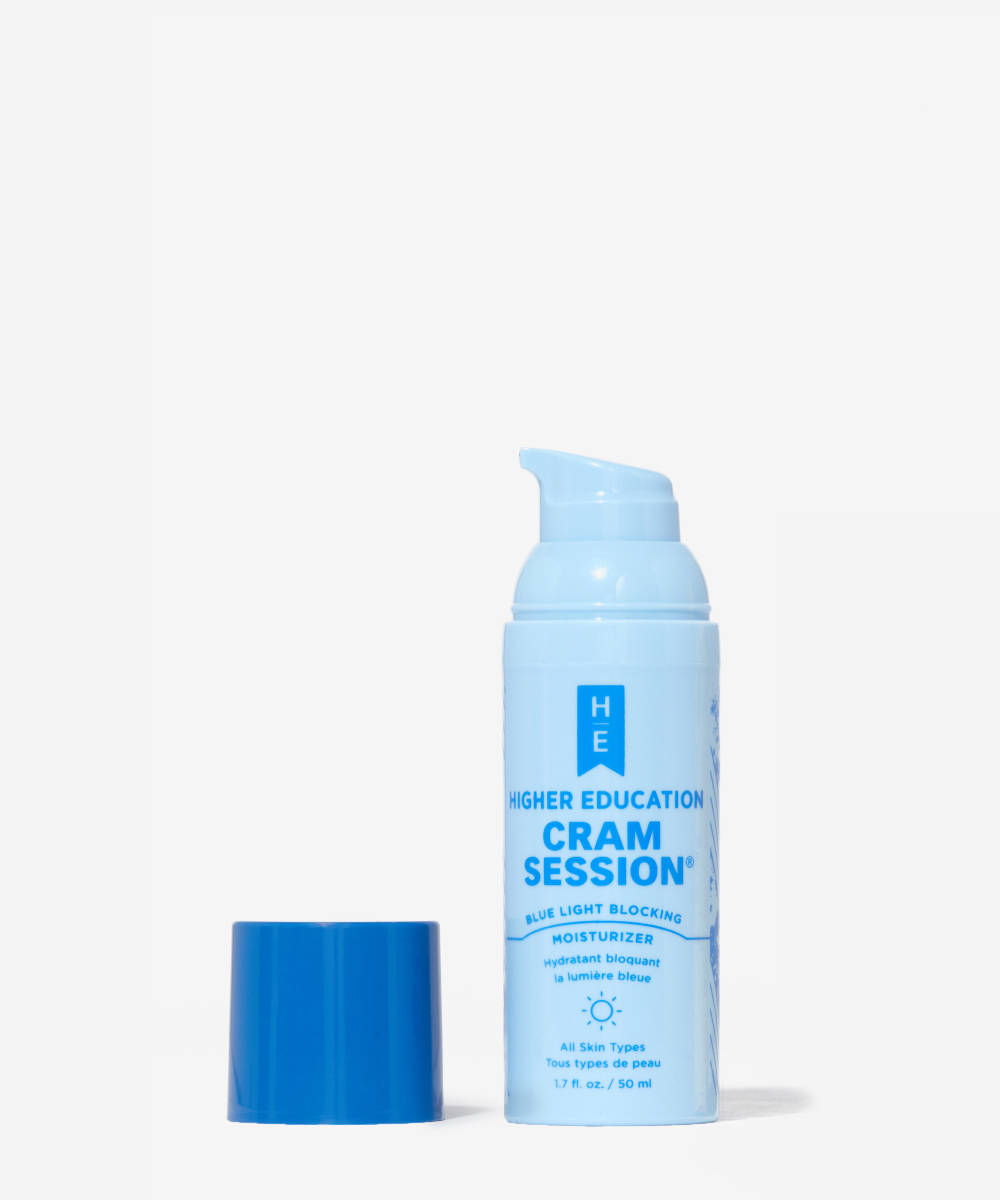Screentime stats through the roof? Us too. The glow coming from our screens isn’t just keeping it us at night. It could also be wreaking havoc on our skin. Blue light (aka High Energy Visible Light) is thought to contribute to a whole host of skin woes, from hyperpigmentation to premature ageing.
If you spend any time staring at a screen, it’s time to incorporate some anti-blue light skincare into your routine. Supercharged with potent antioxidants, these products are designed to block those high energy waves, keeping skin protected around the clock.
1. Blue light is not all bad
While it can certainly throw both our sleep and skin out of whack, we wouldn’t function without blue light. Those high energy beams play a huge role in our circadian rhythm, controlling our sleep-wake cycle and acting as our natural alarm clock.
Ironically, although blue light can trigger an inflammatory response in the skin, it also plays a useful role in controlling skin conditions like acne. Normally delivered via the space age masks you might have seen on Instagram, blue light therapy has an antimicrobial effect, killing bacteria that lurks within the oil glands acting as a trigger for breakouts.
The key to harnessing the power of blue light lies in controlling when, and for how long, blue light hits our skin.
2. Sunshine and screentime
Although our gadgets take most of the rap for blue light emissions, the main source we’re exposed to is actually the sun. While we’re all conscious of the sun’s damaging UVA and UVB rays, one small study showed blue light from the sun caused more redness and pigmentation than comparable levels of UVA.
Our love of modern technology has effectively doubled our exposure to blue light, stretching it beyond the daylight hours. Studies on the effects of synthetic blue light on our skin are still limited, but there’s mounting evidence it may contribute to wrinkles, photo ageing, sagging and hyperpigmentation – just like the sun.
While there’s no official ‘safe level’ of screentime, there’s been an explosion of anti-blue light skincare products to help minimise the potential long-term damage.
3. Your SPF probably isn’t cutting it
Protecting against UVA and UVB should be top priority, but unless your SPF contains physical mineral sunscreens like iron oxide, which block visible light, you’re not protected against blue light from the sun or your screen.
While blue light isn’t known to cause skin cancers or burning, shielding the skin against it can be particularly helpful for sun-sensitive skin issues like rosacea and lupus.
For all-round protection try layering a targeted anti-blue light moisturiser, like the Higher Education Skincare Cram Session Blue Light Blocking Moisturiser, under your SPF.
4. Set your skincare to night mode
You’ve found that setting on your devices, now do the same for your skin. Applying an anti-blue light moisturiser before bed can help to shield skin from the effects of late-night scrolling sessions.


